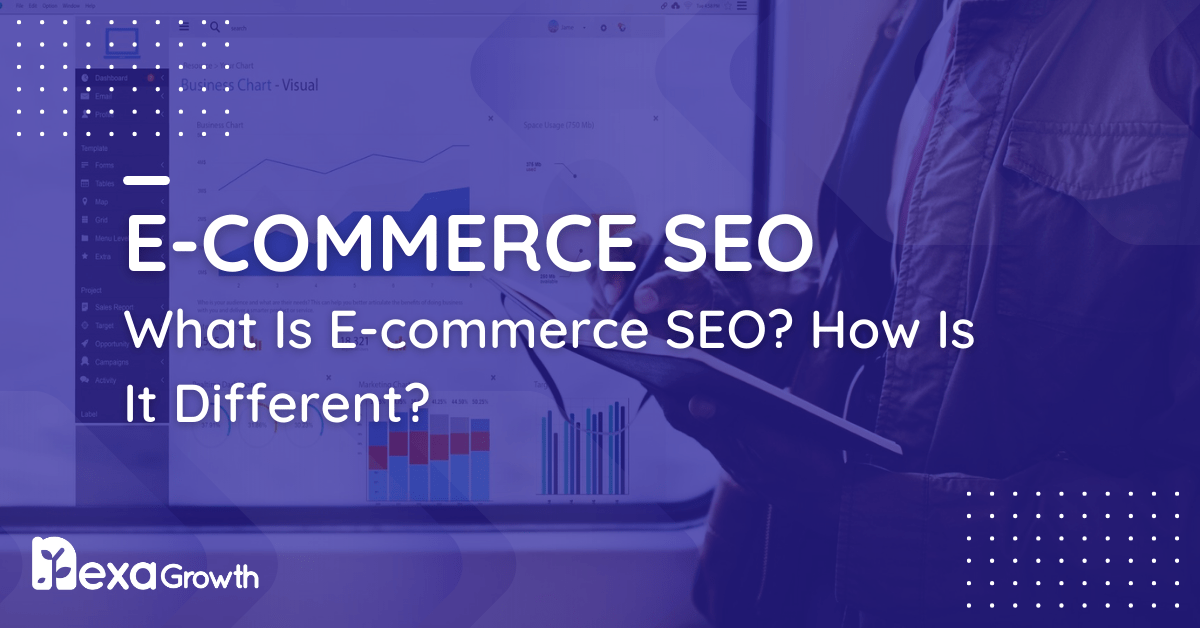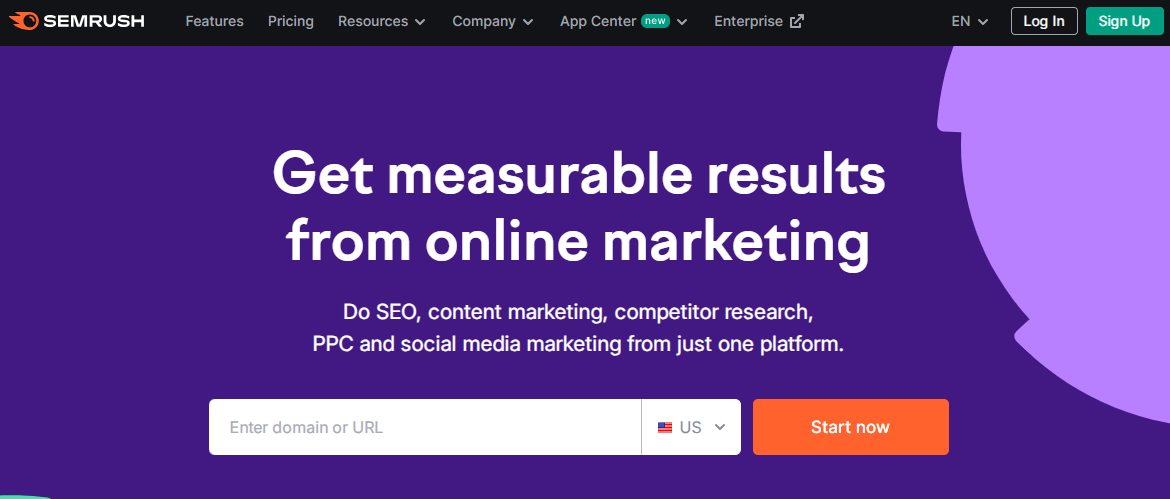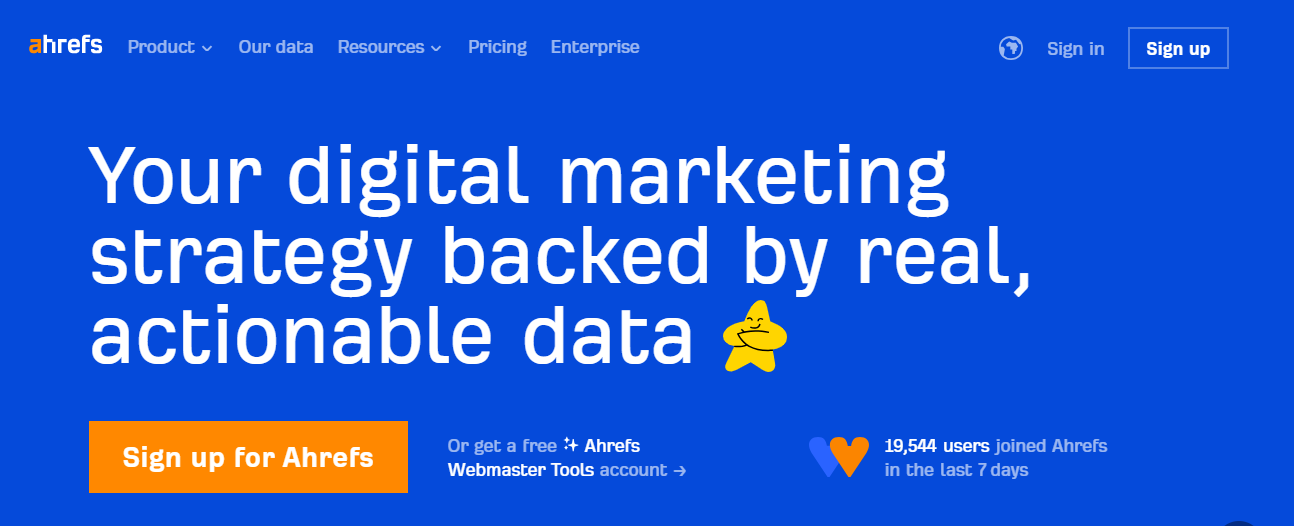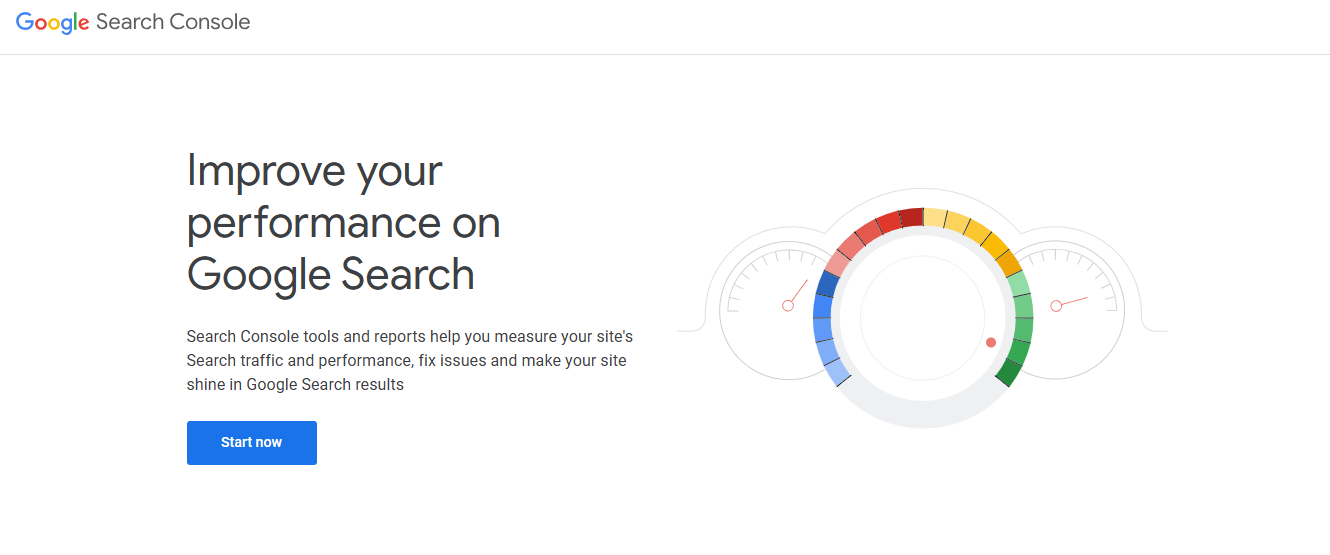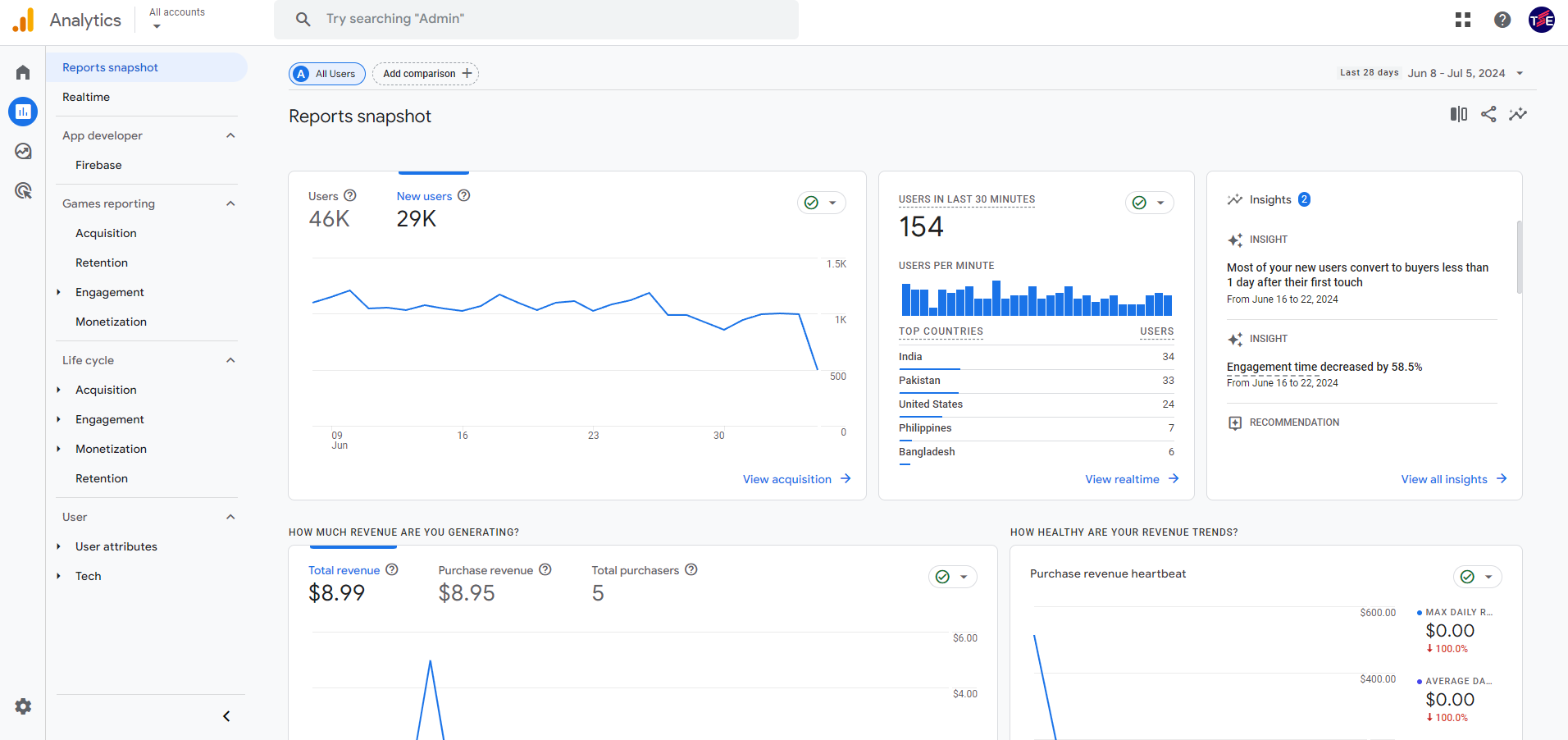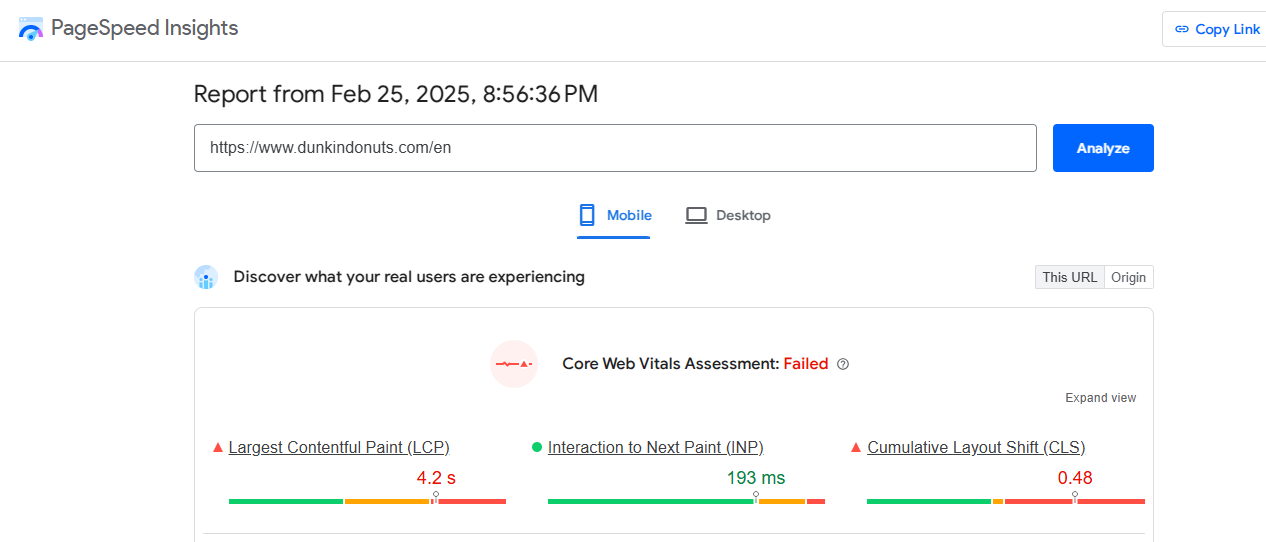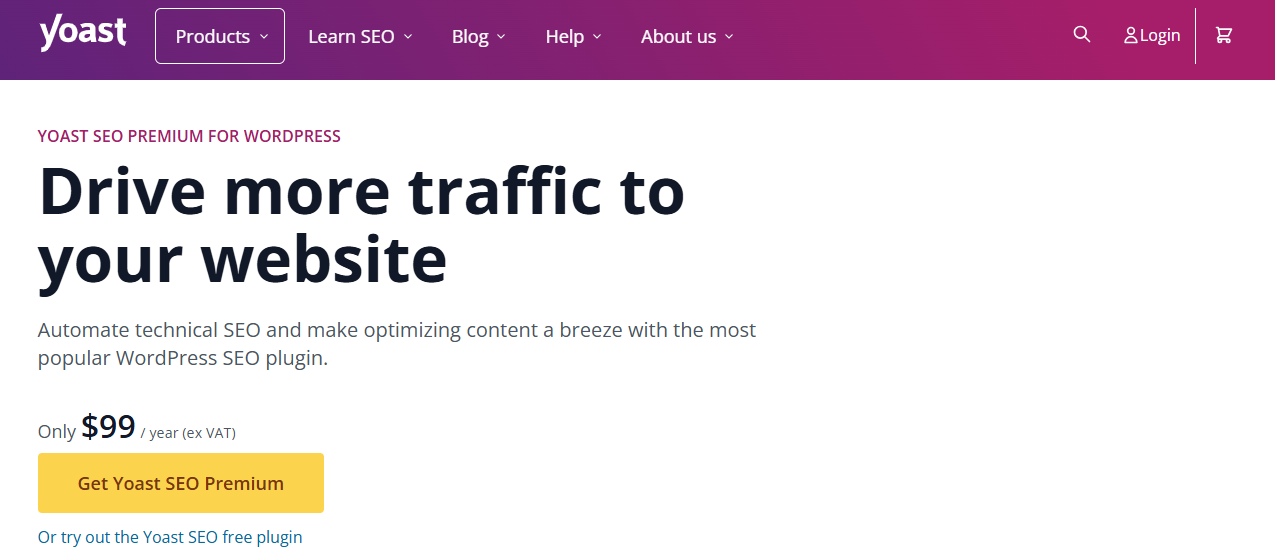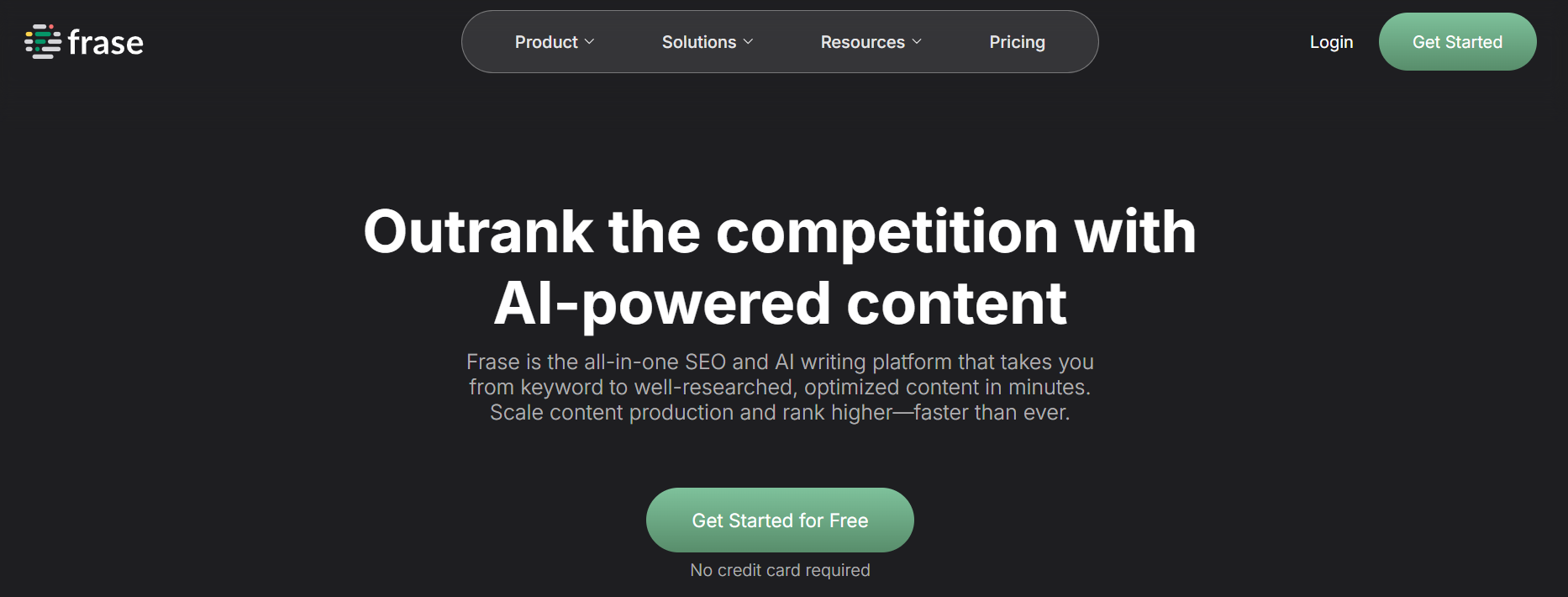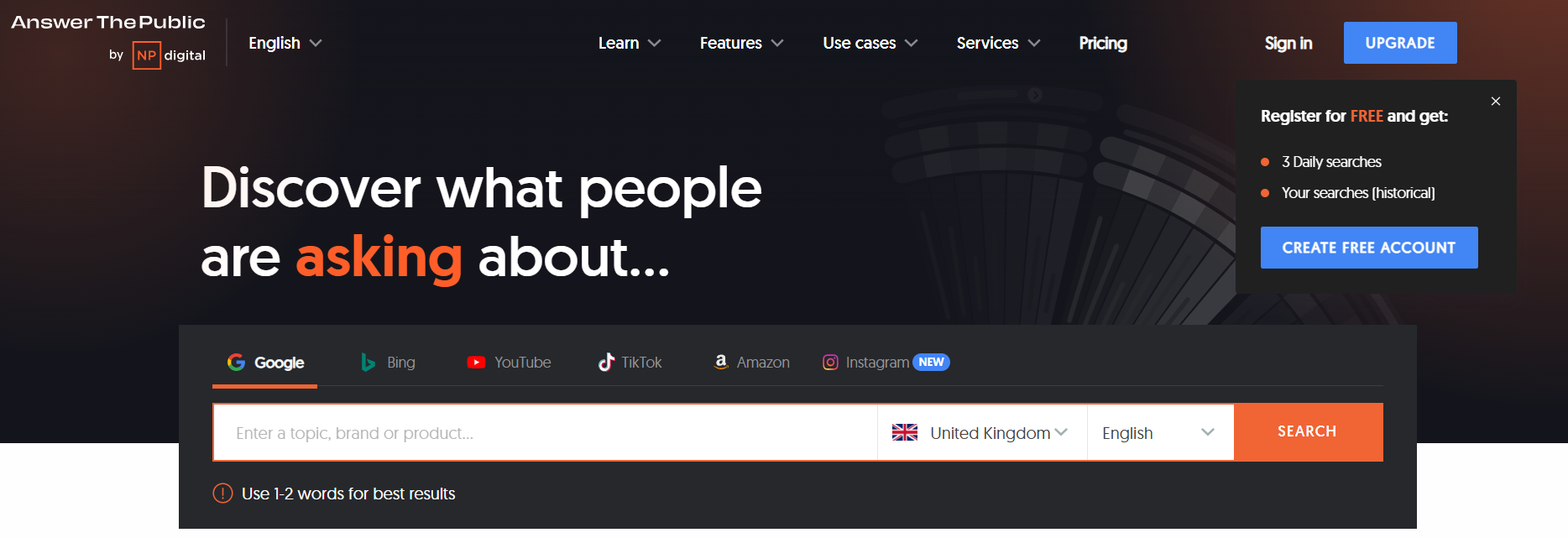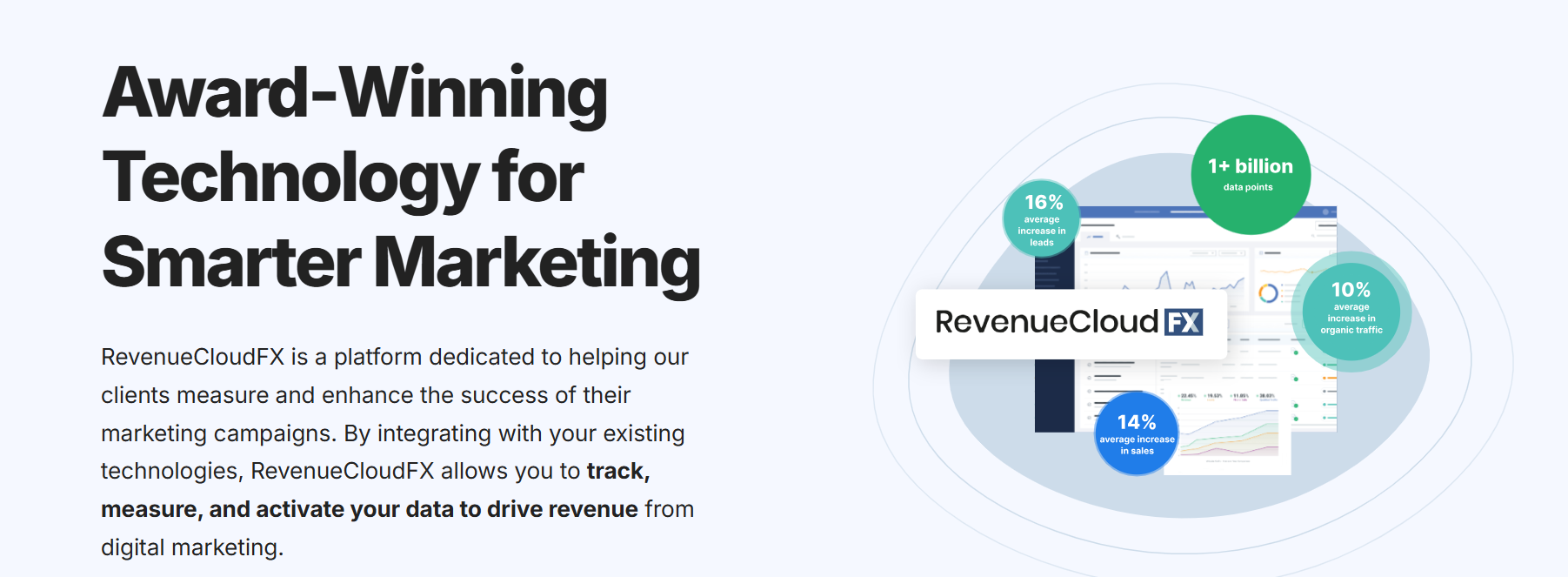- Use essential tools like Google Search Console, GA4, and PageSpeed Insights to monitor and improve performance.
- Choose tools based on your goals—content optimization, technical SEO, or backlink building.
- Semrush, Ahrefs, Screaming Frog, and Frase are top picks for comprehensive SEO strategies.
- Free tools like ChatGPT, AnswerThePublic, and Google’s suite are ideal for startups and small businesses.
- Build a tech stack that scales with your store’s size and SEO maturity.
Visibility is everything in retail. With over 26 million e-commerce sites across the globe and more launching every day, standing out in search engine results can mean the difference between thriving sales and being buried on page three of Google.
That’s where e-commerce SEO tools come into play.
Search engine optimization (SEO) is one of the most cost-effective ways to drive consistent, high-intent traffic to your online store.
However, unlike traditional websites, e-commerce stores come with unique SEO challenges: thousands of product pages, duplicate content, crawl budget issues, site speed bottlenecks, and the need for ongoing content optimization.
These problems can’t be solved manually or with a one-size-fits-all solution.
That’s why specialized SEO tools designed for e-commerce are crucial.
Whether you’re managing a small Shopify store or a multi-brand Magento enterprise, the right tools can help you uncover ranking opportunities, fix technical issues, and stay ahead of your competitors.
In this guide, we’ll explore the best e-commerce SEO tools available—covering everything from keyword research and content optimization to technical audits and AI-powered insights.
You’ll learn which tools are worth your investment, how they compare, and how to build a stack that fits your business goals and budget.
Let’s dive into the tools that can help your e-commerce site attract more organic traffic, improve search rankings, and convert visitors into loyal customers.
Why Rent Tools When You Can Hire Pros?
Let Nexa Growth handle your e-commerce SEO with precision and purpose.
Contact UsWhat Are E-commerce SEO Tools?
E-commerce SEO tools are software applications and platforms designed to help online retailers improve their visibility in search engine results.
These tools automate, streamline, and enhance various aspects of search engine optimization, specifically tailored to the needs of e-commerce websites.
Unlike general SEO tools, which are built for a broad range of websites, e-commerce SEO tools address the unique technical and content-related challenges that online stores face.
These include managing large product catalogs, optimizing category pages, handling duplicate content, implementing structured data for products, and improving site speed and mobile usability.
A well-chosen set of e-commerce SEO tools can help businesses:
Identify and target profitable keywords
- Analyze competitors’ organic and paid strategies
- Audit technical SEO issues at scale
- Optimize content for product and category pages
- Monitor performance in search engines like Google and Bing
- Improve user experience and conversion rates
For example, tools like Screaming Frog allow online retailers to crawl thousands of product URLs and detect SEO errors quickly.
Platforms like Semrush and Ahrefs provide keyword and backlink intelligence to uncover opportunities.
Meanwhile, content optimization tools like Frase or Clearscope help ensure that your product and category pages are not only ranking but also meeting user intent.
E-commerce businesses of all sizes—from single-product startups to large enterprise marketplaces—can benefit from these tools.
The key is selecting a combination that aligns with your store’s size, platform (such as Shopify, WooCommerce, Magento), and marketing goals.
Top 15 E-commerce SEO Tools for 2026
Choosing the right e-commerce SEO tools can significantly impact how your online store ranks, attracts traffic, and converts visitors.
Below is a curated list of the most effective SEO tools for e-commerce businesses in 2026, including their standout features, best use cases, pricing considerations, and alternatives.
Semrush
- All-in-one SEO suite
- Keyword research, competitor analysis, and site audits
- From $129.95/mo
- Mid to large businesses
Ahrefs
- Backlink content strategy
- Backlink index, keyword gap analysis, SERP history
- From $99/mo
- SEO teams and link builders
Screaming Frog
- Technical audits
- Site crawling, duplicate detection, and structured data check
- Free / £149/yr
- Large e-commerce sites
Google Search Console
- Performance monitoring
- Search performance data, indexing issues, schema errors
- Free
- All e-commerce businesses
Google Analytics 4
- Behavior ROI tracking
- Conversion data, product insights, funnel analysis
- Free
- Stores focused on conversions
PageSpeed Insights
- Site speed optimization
- Core Web Vitals, mobile speed scores, and UX improvements
- Free
- Mobile-first and UX-focused teams
ChatGPT
- Content and keyword generation
- Meta descriptions, ideas, and content planning via prompts
- Free Paid tiers
- Content teams and marketers
Yoast / Rank Math
- On-page SEO
- Snippet previews, schema, SEO scoring
- Free Paid tiers
- WordPress / WooCommerce stores
Frase
- Content optimization
- SERP briefs, content scoring, question suggestions
- From $14.99/mo
- Category + blog SEO
AnswerThePublic
- Long-tail keyword research
- Visual keyword maps, FAQ content ideas
- Free / From $9/mo
- Content strategists
SE Ranking
- Affordable full-suite SEO
- Rank tracking, site audits, and backlink monitoring
- From $44/mo
- Small to mid-sized businesses
BuzzStream
- Link building and outreach
- Outreach campaigns, prospect lists, and relationship CRM
- From $24/mo
- PR and outreach specialists
Featured
- Authority building via media mentions
- Source requests, media outreach tracking
- Free
- Thought leadership + PR
Exploding Topics
- Trend spotting
- Discover emerging keywords and product trends
- Free Paid
- Trend-focused sellers
RevenueCloudFX
- Custom strategy automation
- Dashboards, CRM integration, reporting
- Different prices
- Agencies or enterprise clients
Semrush

Semrush’s Webpage Semrush is an all-in-one SEO platform that offers keyword research, competitive analysis, backlink auditing, and rank tracking.
For e-commerce brands, it’s especially useful for uncovering keyword gaps between your store and competitors, analyzing PPC campaigns, and identifying backlink opportunities.
Key Features:
- Domain vs. domain comparison
- Product-focused keyword gap analysis
- Traffic analytics for competitor stores
- On-page SEO checker
Best for: Mid to large e-commerce businesses needing a full-stack SEO suite
Pricing: Starts at $129.95/month
Alternative: AhrefsAhrefs

Ahrefs’ Webpage Ahrefs is known for its powerful backlink index and comprehensive keyword tools.
E-commerce marketers use Ahrefs to track competitors’ organic performance, explore content gaps, and identify link-building opportunities.
Key Features:
- Site Explorer for backlink and traffic analysis
- Content Gap tool
- Keyword Difficulty and Volume Estimations
- SERP history and trends
Best for: Link building, competitor analysis, and content strategy
Pricing: Starts at $99/month
Alternative: SemrushScreaming Frog

Screaming Frog’s Webpage Screaming Frog is a technical SEO crawler used to audit on-site SEO elements.
It’s ideal for large e-commerce sites with thousands of SKUs, helping identify duplicate content, missing metadata, broken links, and pagination issues.
Key Features:
- Bulk crawling for up to 500 URLs in the free version
- Custom extraction for structured data
- Integration with Google Analytics and Search Console
- Visualizations for site architecture
Best for: Technical SEO audits of large product catalogs
Pricing: Free for basic use, paid version starts at £149/year
Alternative: SitebulbGoogle Search Console

Google Search Console’s Webpage A must-have free tool from Google that provides essential insights into your store’s search performance. It highlights indexing issues, mobile usability problems, and search queries bringing traffic to your product and category pages.
Key Features:
- URL inspection and indexing reports
- Performance reports by keyword, device, and country
- Coverage issues and mobile usability tracking
- Product schema error detection
Best for: Beginners and technical monitoring
Pricing: Free
Alternative: Bing Webmaster ToolsGoogle Analytics 4 (GA4)

Google Analytics GA4 Dashboard GA4 offers detailed reporting on user behavior, conversions, and traffic sources.
When set up for e-commerce, it allows you to track product views, cart activity, and purchase journeys—essential for aligning SEO with performance metrics.
Key Features:
- Event-based tracking
- Integration with Google Ads and Search Console
- Ecommerce-specific reports
- Funnel and path analysis
Best for: Performance monitoring and ROI tracking
Pricing: Free
Alternative: MatomoPageSpeed Insights and Lighthouse

Google Page Speed Insights PageSpeed Insights, powered by Google Lighthouse, helps analyze your site’s speed and performance, both of which are critical ranking factors.
Fast-loading sites lead to lower bounce rates and better conversion rates—especially on mobile.
Key Features:
- Core Web Vitals diagnostics
- Performance scores for desktop and mobile
- Actionable UX and speed recommendations
Best for: Improving load time and UX across product pages
Pricing: Free
Alternative: GTmetrixChatGPT and Other AI SEO Assistants

ChatGPT’s Dashboard ChatGPT can help e-commerce businesses generate keyword ideas, draft meta descriptions, create FAQ content, and identify technical issues faster through conversational prompts.
Key Features:
- Content planning and clustering
- Product description generation
- On-page optimization assistance
- Prompt-based content rewriting
Best for: Accelerating content creation and SEO planning
Pricing: Varies (ChatGPT offers free and premium plans)
Alternative: Claude, Jasper AIYoast SEO / Rank Math

Yoast SEO Plugin For stores using WordPress or WooCommerce, plugins like Rank Math and Yoast simplify on-page optimization. They offer real-time feedback on content, metadata, schema, and internal linking.
Key Features:
- Snippet previews
- Product schema support
- Readability and SEO score tracking
- Canonical and noindex settings
Best for: On-page SEO management in WooCommerce environments
Pricing: Free and premium versions available
Alternative: All in One SEO PackFrase

Frase’s Webpage Frase helps optimize product and category content by analyzing the top-ranking pages for your target keywords. It generates SEO briefs and offers real-time scoring for content relevance.
Key Features:
- Content briefs and outlines
- SERP analysis and competitor scoring
- Question suggestions based on search intent
Best for: Optimizing long-form content and category pages
Pricing: Starts at $14.99/month
Alternative: ClearscopeAnswerThePublic

AnswerThePublic Tool AnswerThePublic visualizes search queries people ask around a given keyword. It’s perfect for building FAQ content, blog posts, or support pages that target long-tail keywords.
Key Features:
- Visual maps of related questions
- Topic and comparison-based keyword suggestions
- Export to CSV
Best for: Discovering long-tail questions to support product SEO
Pricing: Free limited use, paid plans start at $9/month
Alternative: AlsoAskedSE Ranking

SE Ranking Webpage SE Ranking is an affordable yet powerful all-in-one SEO platform that’s particularly attractive to small and mid-sized e-commerce businesses. It offers keyword tracking, on-page audits, competitor research, and backlink analysis.
Key Features:
- Keyword rank tracking across multiple search engines
- Website audit tool with e-commerce-specific checks
- Competitor SEO and PPC monitoring
- Backlink monitoring and analysis
Best for: Budget-conscious e-commerce teams that need full-stack SEO features
Pricing: Starts at $44/month
Alternative: MangoolsBuzzStream

BuzzStream’s Webpage BuzzStream simplifies link building and digital PR by helping users find prospects, organize outreach campaigns, and manage communications.
For e-commerce sites, it’s a valuable tool for acquiring backlinks from blogs, influencers, and publishers.
Key Features:
- Email outreach templates and tracking
- Prospect research and list-building tools
- Relationship management dashboard
Best for: Link building campaigns and influencer outreach
Pricing: Starts at $24/month
Alternative: PitchboxFeatured

Featured Webpage Featured connects experts (including e-commerce professionals) with journalists and content creators seeking sources.
Getting mentioned in relevant publications builds credibility and drives high-quality backlinks.
Key Features:
- Access to journalist requests
- Track success rate and response performance
- Niche filtering for relevance
Best for: Earning high-authority backlinks through thought leadership
Pricing: Free
Alternative: QwotedExploding Topics

Exploding Topics Webpage Exploding Topics identifies emerging search trends before they become competitive.
E-commerce brands use it to discover rising product categories, niche keywords, or content angles ahead of competitors.
Key Features:
- Trending keyword identification
- Topic history and growth curve analysis
- Weekly trend reports
Best for: Staying ahead of industry shifts and product search demand
Pricing: Free with limited access, paid plans available
Alternative: Google TrendsRevenueCloudFX (or Your Own Tool)

RevenueCloudFX If you offer a proprietary SEO platform or white-labeled tool, this is the place to highlight it.
Position it as a custom solution that integrates strategy, automation, and performance tracking tailored to e-commerce businesses.
Key Features:
- Personalized keyword targeting
- Custom-built dashboards
- Integration with your internal CRM or analytics
- Campaign automation and reporting
Best for: Agencies or brands offering SEO as a service to e-commerce clients
Pricing: Varies
Alternative: Custom tech stacks or hybrid services
How to Choose the Right eCommerce SEO Tools
With so many e-commerce SEO tools on the market, it can be overwhelming to figure out which ones are truly necessary for your business.
The best strategy is not to invest in every tool available, but to build a tech stack that aligns with your store’s size, SEO maturity, and goals.
Here are key factors to consider when choosing your toolkit:
Your Platform and Tech Stack
Different tools integrate better with different platforms. For example:
- Shopify users may benefit more from plug-and-play apps and tools with native integration like Ahrefs, Google Analytics, or ChatGPT plugins.
- WooCommerce and WordPress users often rely on Yoast SEO or Rank Math for seamless on-page optimization.
- Magento or custom-built stores may require more technical tools like Screaming Frog or Semrush for scalable audits.
Business Size and Budget
- Small stores or startups: Focus on free or low-cost tools like Google Search Console, GA4, and AnswerThePublic. Add tools like SE Ranking or Frase as your needs grow.
- Mid-sized businesses: Invest in mid-tier platforms like Ahrefs or Semrush for keyword and competitor insights. Add Screaming Frog for deeper audits.
- Enterprise e-commerce sites: Combine multiple advanced tools, including content optimization, technical crawlers, backlink platforms, and reporting dashboards.
SEO Goals
Are you trying to grow traffic, improve rankings for specific product categories, fix technical issues, or optimize content? Your goal should guide your tool selection:
- Content growth: Frase, Clearscope, and ChatGPT
- Technical SEO: Screaming Frog, PageSpeed Insights, Google Search Console
- Backlink building: Ahrefs, BuzzStream, Featured
- Analytics and ROI tracking: GA4, RevenueCloudFX, Semrush
Team Skill Level
Some tools are beginner-friendly, while others are geared toward experienced SEOs.
- Tools like Yoast and AnswerThePublic are great for beginners.
- More technical tools like Screaming Frog or Sitebulb require some learning curve.
Scalability
As your site grows, your tools should scale with you.
For example, tools that support bulk exports, API integrations, and multi-site tracking become essential when managing a large product catalog or multiple domains.
Featured Article: What Is E-commerce SEO? How Is It Different?
Conclusion
E-commerce SEO isn’t optional—it’s a critical part of growing your store’s visibility, driving qualified traffic, and converting that traffic into revenue.
Whether you’re running a lean startup or managing an enterprise-level online store, the right combination of tools can make your SEO strategy more effective, more scalable, and easier to manage.
Start with the essentials: Google Search Console, GA4, and a solid on-page SEO plugin if you’re using WordPress.
From there, layer in tools that align with your goals—be it technical SEO, content optimization, backlink building, or performance tracking.
Don’t aim to use every tool available; instead, invest in a focused toolkit that supports your unique business model.
Remember, the best e-commerce SEO tools don’t just give you data—they help you make smarter decisions.
Choose tools that simplify your workflow, surface valuable insights, and deliver measurable results over time.
Tools Tell You What. We Handle the How.
We take the guesswork—and the grunt work—out of SEO for your store.
Contact UsFAQs
1. What are e-commerce SEO tools used for?
2. Why are SEO tools important for e-commerce?
- Identify crawl and indexing issues
- Optimize pages for high-intent keywords
- Monitor traffic and conversion data
- Keep up with competitors
- Maintain site health at scale
E-commerce SEO tools help you detect issues early, discover opportunities for growth, and measure the ROI of your SEO efforts.
3. What is the best e-commerce SEO tool?
4. Are there free SEO tools for e-commerce?
- Google Search Console: For indexing, search performance, and technical issues
- Google Analytics 4: For tracking user behavior and conversions
- PageSpeed Insights: For evaluating load speed and Core Web Vitals
- AnswerThePublic: Limited free access to content ideas
- ChatGPT (Free tier): For basic keyword research and content generation
These tools provide significant value, especially for small businesses and startups.

